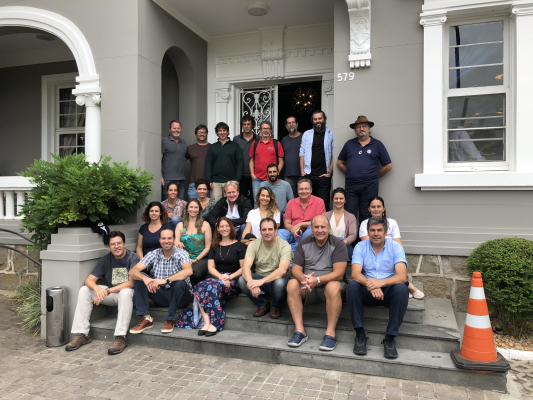Workshop: status of the Franciscana dolphin
25 scientists from three countries have successfully completed a workshop preparing for a new assessment of the status of South America’s Franciscana dolphin. The workshop took place in Porto Alegre, Brazil, hosted by Grupo de Estudos de Mamíferos Aquáticos do Rio Grande do Sul (GEMARS) and supported by Projeto Conservação da Toninha of Fundo Brasileiro para a Biodiversidade (FUNBIO) of Brazil.
The Franciscana is the most threatened small cetacean in the Southwest Atlantic Ocean. The species is listed as Vulnerable by the IUCN Red List and face a range of threats, mainly bycatch. In 2016 the IWC adopted a Conservation Management Plan (CMP) for Franciscana which was proposed by range states for the species, Argentina, Brazil and Uruguay.
The main goal of this workshop was to prepare information on abundance and trends, threats, and national management and conservation initiatives. These will be submitted for a new review during the upcoming annual Scientific Committee Meeting in May in Cambridge, UK. The last IWC review of the Franciscana was in 2004 and the new work is expected to guide future conservation efforts under the Franciscana CMP.
Conservation Management Plans (CMPs) are an important conservation initiative of the IWC. They draw on the best available science and management expertise from the international community, to provide a framework for countries within the range of vulnerable cetacean populations (known as range states) to work together, and in collaboration with other relevant stakeholders, to protect and rebuild those populations.
The workshop took place from 12-14 February and the IWC Scientific Committee meeting will be held 12-24 May.
To read more about the Franciscana CMP click here.

